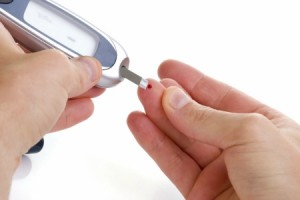April 28, 2014
 On its front page, the Wall Street Journal (4/26, A1, Searcey, Stewart, Subscription Publication) reported on the burgeoning business of cord blood storage and use, pointing out that asking parents if they want to save a baby’s cord blood is becoming increasingly routine but is destined for a $4 billion industry that the Journal says is only lightly regulated and contains plenty of problems.
On its front page, the Wall Street Journal (4/26, A1, Searcey, Stewart, Subscription Publication) reported on the burgeoning business of cord blood storage and use, pointing out that asking parents if they want to save a baby’s cord blood is becoming increasingly routine but is destined for a $4 billion industry that the Journal says is only lightly regulated and contains plenty of problems.
[Read more…]
Cord blood storage increasingly routine but problematic
Poisonings from liquid nicotine found in e-cigarettes surge
March 24, 2014
 The New York Times (3/24, A1, Richtel, Subscription Publication) reports on its front page that a “dangerous” and unregulated form of nicotine, found in e-cigarettes, “is hitting markets nationwide” and causing an uptick in poisonings from the substance. The Times says “evidence of the potential dangers is already emerging,” “notably among children.” The Times says there is even one known death, from an adult who injected the liquid form of nicotine. Indeed, related cases “jumped to 1,351 in 2013, a 300 percent increase from 2012, and the number is on pace to double this year, according to information from the National Poison Data System.”
The New York Times (3/24, A1, Richtel, Subscription Publication) reports on its front page that a “dangerous” and unregulated form of nicotine, found in e-cigarettes, “is hitting markets nationwide” and causing an uptick in poisonings from the substance. The Times says “evidence of the potential dangers is already emerging,” “notably among children.” The Times says there is even one known death, from an adult who injected the liquid form of nicotine. Indeed, related cases “jumped to 1,351 in 2013, a 300 percent increase from 2012, and the number is on pace to double this year, according to information from the National Poison Data System.”
[Read more…]
New diabetes guidelines may help standardize care, increase prevention
March 3, 2014
 Updated diabetes care guidelines place emphasis on the A1C blood test when testing for diabetes, a shift that could help physicians standardize diabetes screening and prevention with the consistent use of one primary test.
Updated diabetes care guidelines place emphasis on the A1C blood test when testing for diabetes, a shift that could help physicians standardize diabetes screening and prevention with the consistent use of one primary test.
The American Diabetes Association’s (ADA) updated Standards of Medical Care Guidelines explain that the A1C has advantages over other diabetes tests, including greater convenience and stability and fewer factors that can skew results.
The testing recommendations in the guidelines include:
• Testing should be considered in adults of any age with a body mass index of 25 or more, and one or more of the known risk factors for diabetes.
• Because age is a major risk factor for diabetes, testing should begin at 45 years old for those without these risk factors.
• Testing should take place within the health care setting because of the need for follow-up and discussion of abnormal results.
[Read more…]
Use of acetaminophen in pregnancy tied to ADHD
February 25, 2014
 One major television network, two major newspapers, Internet media outlets and consumer medical websites cover a study suggesting an association between expectant mothers’ use of acetaminophen during pregnancy and an increased risk for attention-deficit/hyperactivity disorder in their children. All of the sources note that acetaminophen has long been thought to be safe for use during pregnancy.
One major television network, two major newspapers, Internet media outlets and consumer medical websites cover a study suggesting an association between expectant mothers’ use of acetaminophen during pregnancy and an increased risk for attention-deficit/hyperactivity disorder in their children. All of the sources note that acetaminophen has long been thought to be safe for use during pregnancy.
On NBC Nightly News (2/24, story 2, 1:10, Williams), medical editor Nancy Snyderman, MD reported on a study that found use during pregnancy of acetaminophen has been tied to an “increased risk of having a child diagnosed with” attention-deficit/hyperactivity disorder (AD/HD).
[Read more…]